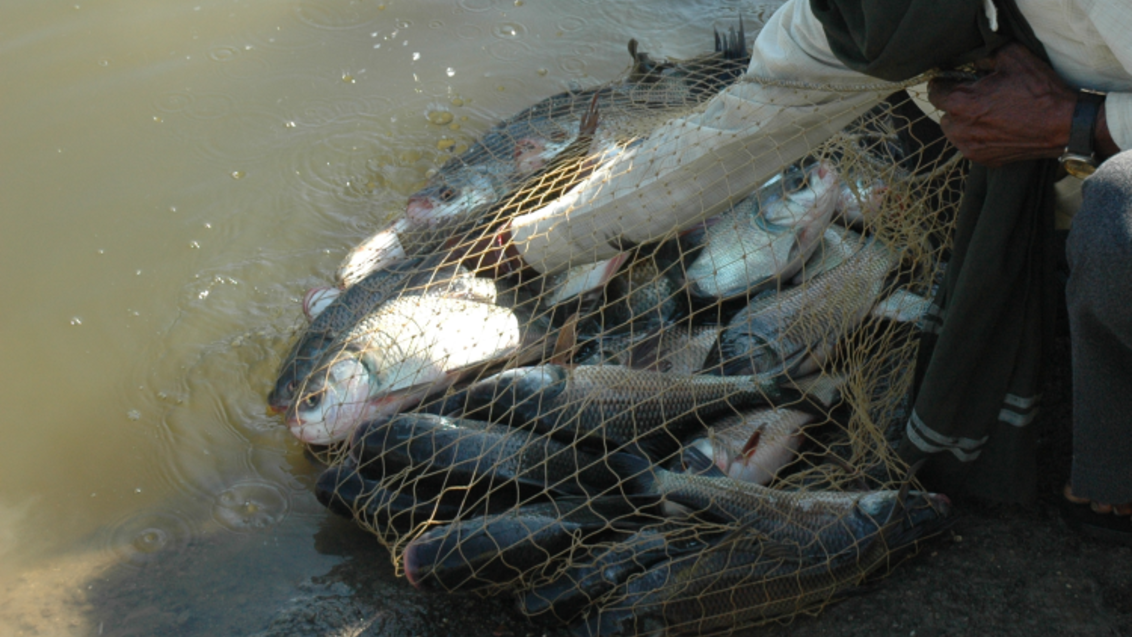When a safety net widens the fishing net

Aquaculture – rearing fish – is an important source of income for Cambodia’s smallholders. It also contributes crucially to the nation’s diet. Further growth is planned. But there are constraints in the way. Insurance could play a valuable role in overcoming them.
On average, each Cambodian eats 41kg of fish per year. That is about 70% of the total animal protein intake for the population of almost 17 million. Cambodia’s aquaculture sector currently employs some six million people*. Many of them are small-scale farmers. The sector is highly diverse. Facilities range from simple backyard ponds to large-scale, highly intensive operations. So far, aquafarmers carry all the production risks on their own.
The Cambodia Fisheries Administration (FiA) intends aquaculture to remain a key to supplying the nation’s requirements. Its Strategic Planning Framework 2015-2024 foresees strong average annual production growth in the short term. The aim by 2024 is for about 240,000 smallholders to produce some 185,000 tons per year. That would be roughly a quarter of current national consumption. “However, aquaculture here is at an early stage compared to neighboring countries”, comments Sophary Long. She is our local Project Manager for agricultural insurance. “One major constraint for smallholders is poor access to credit for investment.”
To address this issue, our Foundation and several partners** recently ran a workshop. “Together, we discussed various methods of linking insurance with credit and other important inputs”, comments Sophary. “Each method has its advantages and limitations for the three parties involved: farmers, financial service providers, and insurers.”
The workshop aimed to set a sector-wide agenda aligned with Cambodia’s fishery policies. Attendees included officials from the FiA and the Ministry of Agriculture, Forestry & Fisheries, as well as representatives of the insurance sector, other private enterprises, NGOs, and development organizations. “The workshop gave everybody a good understanding of the current situation and enabled us all to lay out a roadmap to improve smallholders’ resilience”, Sophary sums up. “Insurance can play a pivotal role here, and we look forward to helping it do so.”
Our workshop partners and we are currently concluding a feasibility study. This examines the risks from various biotic and abiotic factors, to help develop appropriate insurance products. The findings are due in October.
*Internationally, aquaculture often plays a big role in rural entrepreneurship. Here are examples we’ve studied in Nigeria.
**Workshop partners included:
FORTE Insurance (Cambodia) Plc., is a provider of diverse insurance products including in the agricultural area.
Commercialization of Aquaculture for Sustainable Trade (CAST), part of the U.S. Department of Agriculture’s ‘Food for Progress’ program.
World Vision International, is a Christian relief, development, and advocacy organization.
